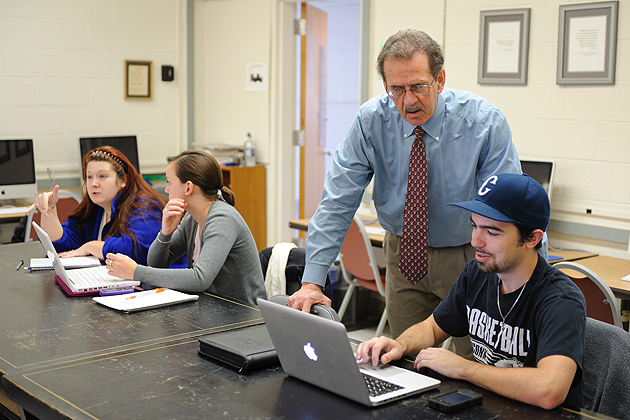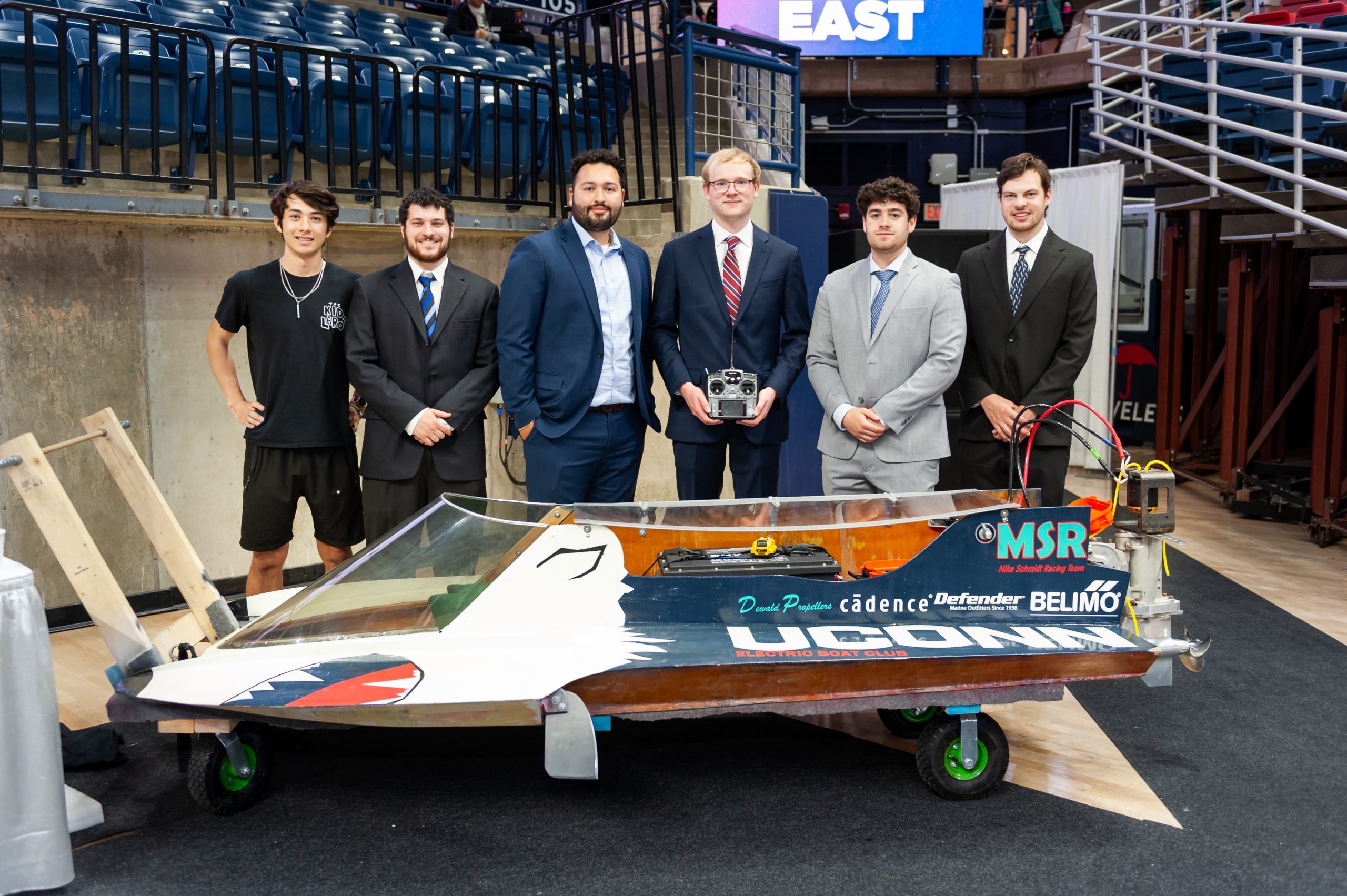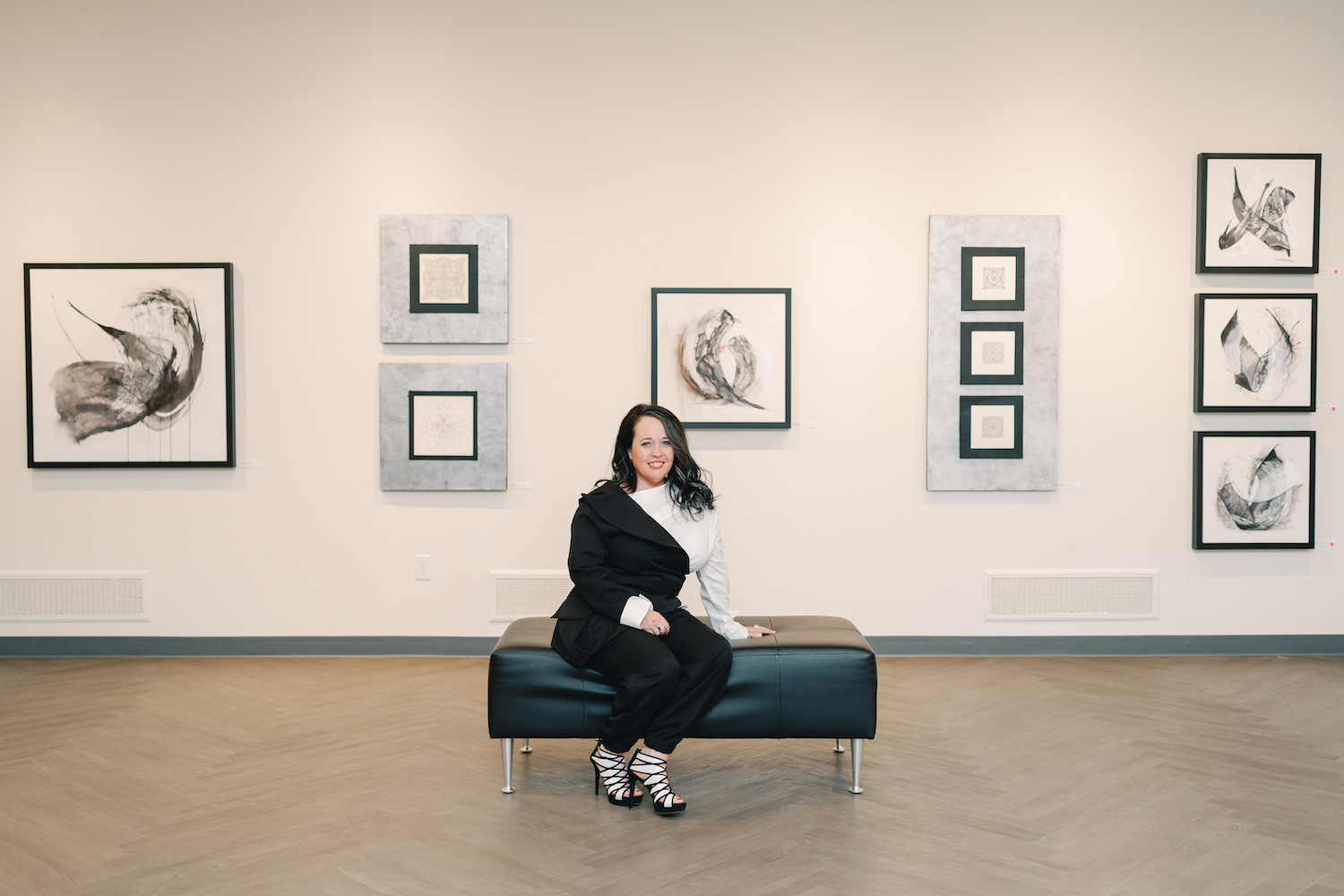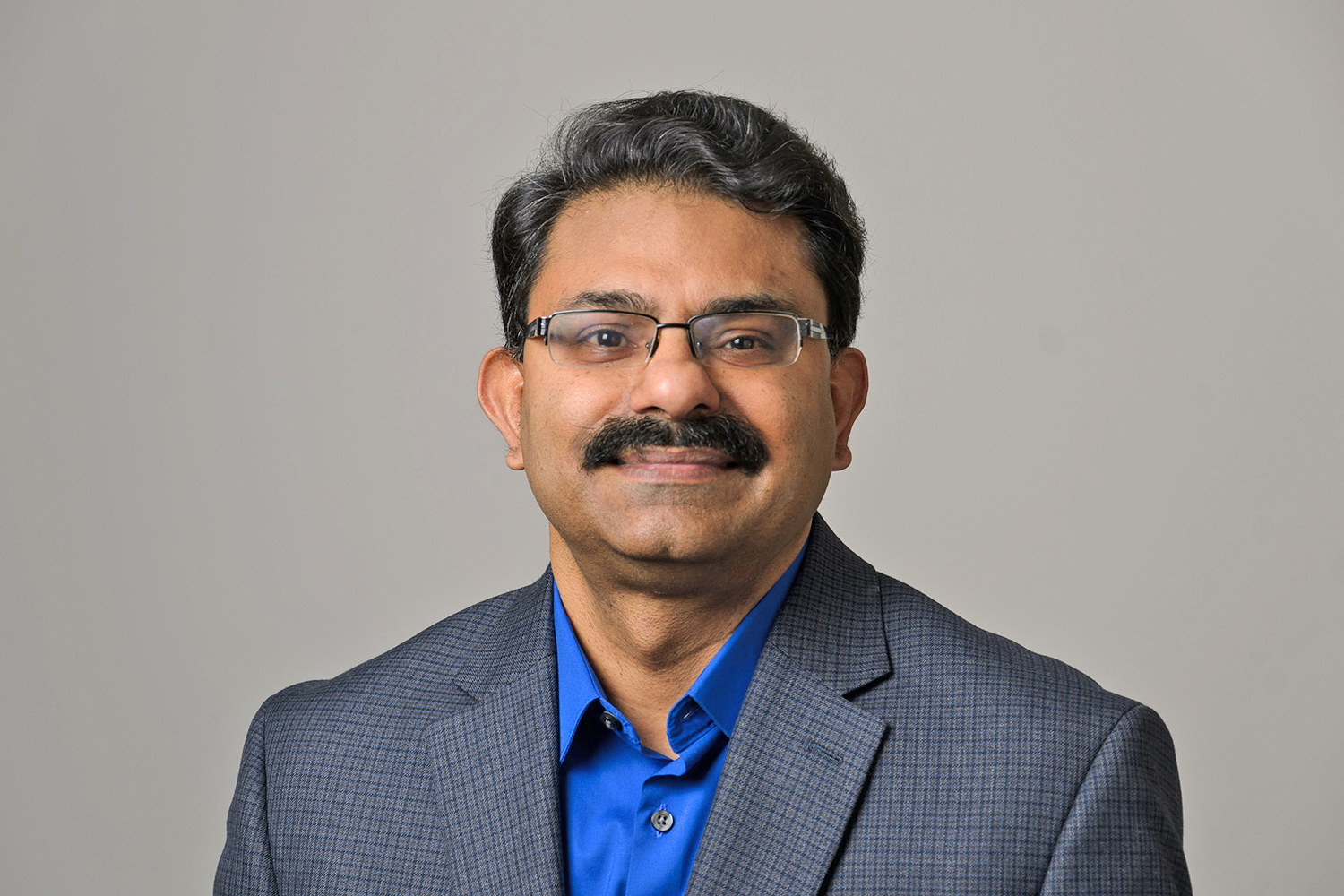
It was the winter of 1972, and Marcel Dufresne’s college journalism professor loaded the class into a bus and took them to New Hampshire, assigning each to shadow one of the Democratic candidates for president as they began the long slog through the primary. The specter of terrorism was not yet a household word and, for three days, Dufresne and his friends were able to ride in candidates’ buses and attend rallies, just like the Big Boys of journalism.
“That’s what sold me on becoming a journalist,” Dufresne, now an associate professor of journalism at UConn, says. “We were there when [Edmund] Muskie cried on the steps of the Manchester Union-Leader. Following the candidates, watching reporters work, was really exciting. And it taught me how important it is to get out there, to get some experience out of the classroom. Supervised time in the field.”
For students who’ve accepted an invitation to join Dufresne’s investigative reporting class in the past three years, there has been plenty of supervised time in the field.
Christopher Duray is a UConn alum who was part of a team that wrote a series of stories on gambling by college students. “It was a great time,” he says. “It was the first time I ever worked on a project of that scale. It was pretty intense stuff.”
During his research, Duray sat in on several Gamblers Anonymous meetings where, for the first time as a journalist, he interviewed people who were “frank, and in an emotional period of their lives, as opposed to covering a student government meeting. I talked to a guy who had blown everything he had built up for 20 years on scratch tickets.”

Dufresne says that class produced “a dozen good stories” from their research on underage gambling and addiction, which ran in the Daily Campus and won awards from the Connecticut chapter of the Society of Professional Journalists for best online feature story and best in-depth series in a newspaper with a circulation under 18,000.
The award is one of a number of accolades students in Dufresne’s advanced classes have received over the years, including awards from the New England Newspaper and Press Association, and others in addition to the Connecticut chapter of the Society of Professional Journalists. Most of the stories they wrote were picked up by one or more collaborating newspapers, including the Hartford Courant, The Day of New London, and the Manchester Journal Inquirer.
Dufresne, who has been at UConn since 1989, started the investigative journalism course in 2010, an outgrowth of an advanced reporting class. It is from that class that he finds some of the best, most committed students – many of whom have already completed internships – whom he will invite to join the investigative course.
“These are students who have done everything they can to be ready” to move into real world journalism, he says, noting that it’s a world that isn’t always exactly what the students expect.
“Students want to be investigative reporters, but they find out it’s really hard work,” Dufresne says. “I send them out to recheck their stories. Double check. Triple check. It has to be right. They learn the intensity of the job.”
They also learn the drudgery of the job, with data entry playing a large role in a number of the stories they piece together, such as when the 2010 class collected data related to nearly 2,500 press releases issued by the office of Richard Blumenthal, now a U.S. Senator, when he was Connecticut’s attorney general.
“It was horrible,” says Duray, who is now an interactive producer for Hearst Connecticut. “We’d go into the library on weekends and read them, then break them down on data forms, whether it targeted the environment, health, whether he was starting or concluding a legal action. There was data entry for hours on end.
“I hated it a little bit, but it was so effective – you see what it really means to be a journalist,” he says. The research formed the basis of a story in The Day of New London that won reporting awards from the Connecticut Society of Professional Journalists and the New England Newspaper and Press Association.

Digging through public records also helped Greg Bordonaro, a 2008 UConn graduate and a reporter for the Hartford Business Journal, come up with an interesting story – he was part of a group whose research found that thousands of dead people were still registered voters in Connecticut, including more than 300 who had “voted.”
“It was definitely interesting,” Bordonaro says. “Especially in college, you don’t have the opportunity to work on stories like that, stories that landed on the front page of The Hartford Courant. The Secretary of State hosted a conference on fixing the voter rolls, and the legislature passed a bill it hoped would prevent more of the same. That was all pretty exciting.”
Involving student journalists in major entrepreneurial stories is a movement that has been growing for some time, according to Leonard Downie Jr., Weil Professor of Journalism at Arizona State University’s Walter Cronkite School of Journalism and Mass Communications and a former executive editor of the Washington Post. In a recent edition of the American Journalism Review, Downie wrote about a series of food safety stories reported by 27 graduate students at Arizona State.
“Media outlets that published journalism from this and other News21 student reporting projects were able to give their audiences credible, in-depth reporting on major stories affecting everyone, at a time when their own resources for it were decreasing,” he wrote. “None could devote anything like 27 journalists and half-a-dozen supervising editors to a single investigative reporting project.”
Similarly, Dufresne and his current class are devoting their time to a collaboration with the Connecticut Health Investigative Team (C-HIT), a non-profit dedicated to producing in-depth coverage of issues related to health and safety in Connecticut and the surrounding region. Overseen by a group of veteran journalists, the C-HIT team shares its investigative stories with Connecticut media. Dufresne expects the class to produce a handful of investigative stories for C-HIT this year, several of which will raise eyebrows across the state. Neither Dufresne nor the students would reveal details of the stories.
“We broke down into three teams for the stories,” says Amy Schellenbaum, a senior from Manhattan Beach, Calif. “One of the most valuable things I’ve learned in class is the group dynamic of reporting, each team looking at a different aspect of the story.
“Also, I’ve never done any sort of data analysis, data mining. Interpreting all the information and distilling meaning from the data, looking for patterns,” she says. “I’m really grateful for what I’ve learned in the class.”
This summer, Schellenbaum will take those lessons to New York, where she has a paid internship waiting for her at The New York Times.
“I adore journalism,” she says. “I like hearing people’s stories, I like telling them. I like interviewing, and the excitement of the ‘Aha!’ moment.”
Schellenbaum has faced roadblocks, though. Roadblocks she knows will follow her into the field.
“People not talking to you, trying to get through to government agencies, getting them to talk about something they don’t want to talk about, finding raw data and massaging it to get it to say something, the golden nugget,” she says.
With his days on the campaign trail behind him, that enthusiasm from students keeps Dufresne going today.
“I still enjoy it. When the students are serious, excited, and they want to do this kind of work, it’s really invigorating,” Dufresne says. “It keeps me fresh.”


